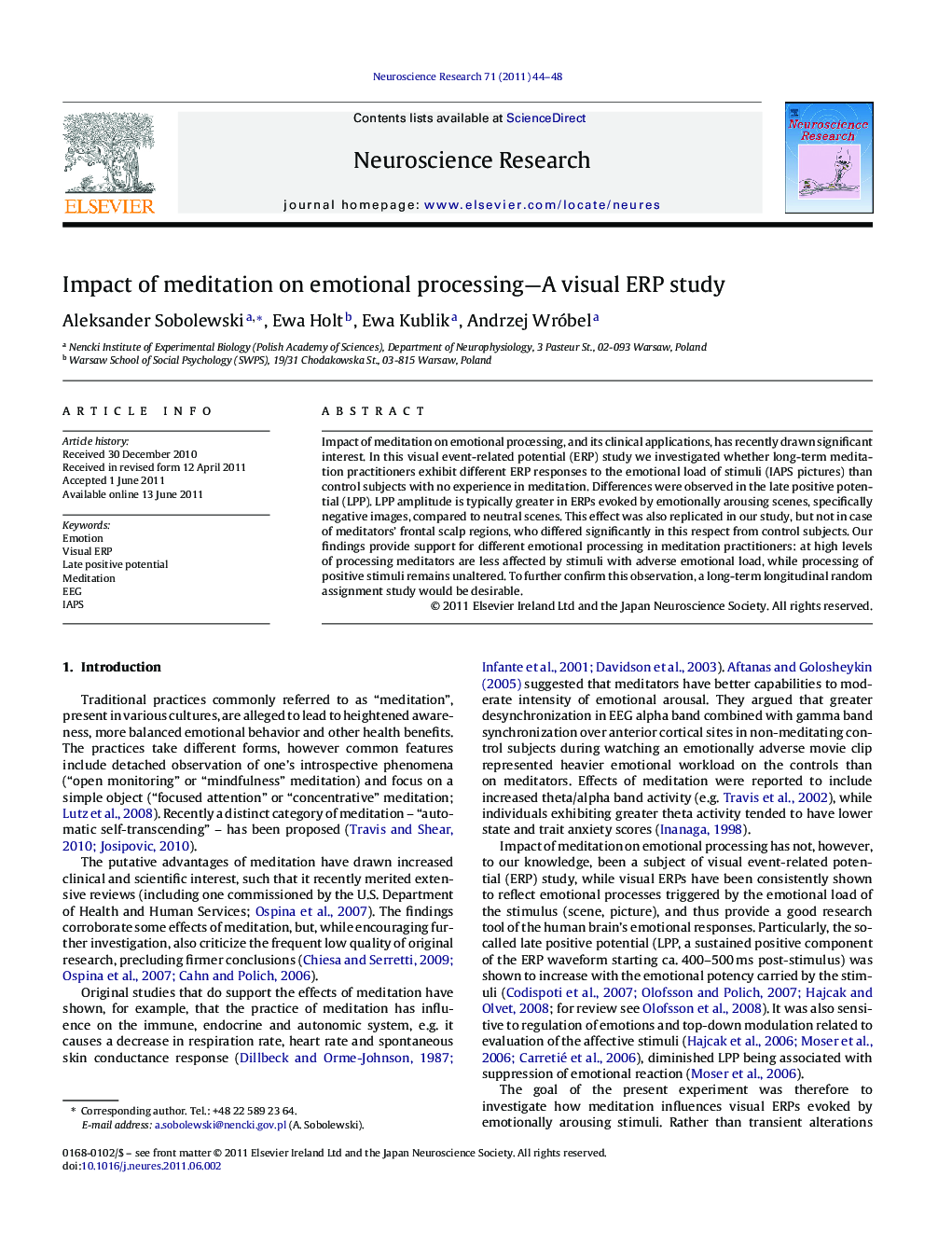| Article ID | Journal | Published Year | Pages | File Type |
|---|---|---|---|---|
| 4351921 | Neuroscience Research | 2011 | 5 Pages |
Impact of meditation on emotional processing, and its clinical applications, has recently drawn significant interest. In this visual event-related potential (ERP) study we investigated whether long-term meditation practitioners exhibit different ERP responses to the emotional load of stimuli (IAPS pictures) than control subjects with no experience in meditation. Differences were observed in the late positive potential (LPP). LPP amplitude is typically greater in ERPs evoked by emotionally arousing scenes, specifically negative images, compared to neutral scenes. This effect was also replicated in our study, but not in case of meditators’ frontal scalp regions, who differed significantly in this respect from control subjects. Our findings provide support for different emotional processing in meditation practitioners: at high levels of processing meditators are less affected by stimuli with adverse emotional load, while processing of positive stimuli remains unaltered. To further confirm this observation, a long-term longitudinal random assignment study would be desirable.
► Visual ERPs reveal altered emotional processing in meditation practitioners. ► At high processing levels meditators are less affected by adverse emotional stimuli. ► Conversely, processing of positive stimuli remains unchanged.
